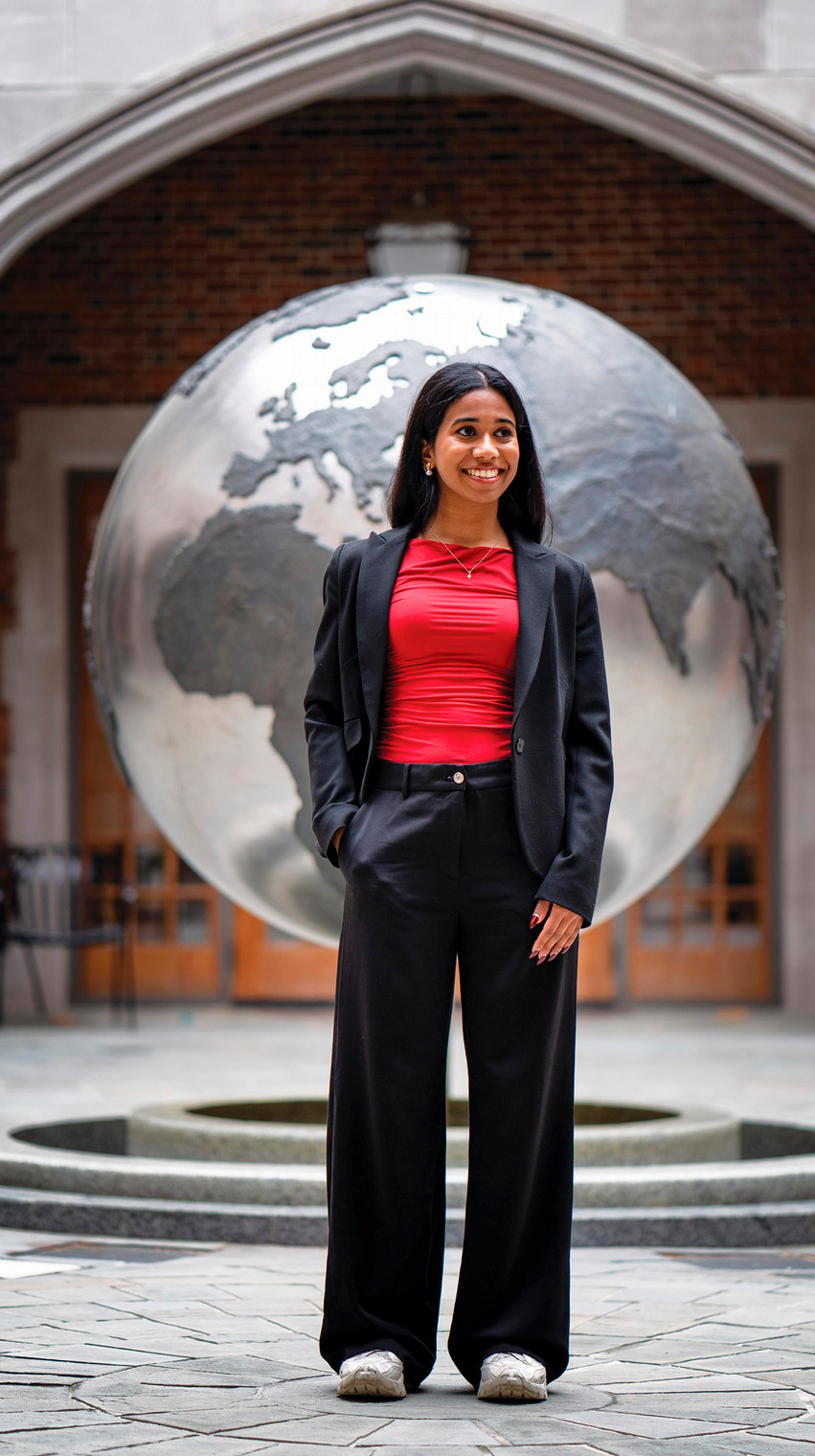When Neha Kalwala, ’25, took her first economics class in a middle school in Hyderabad, India, something clicked. “I loved the math and analytical thinking,” she said. “And I learned that economics can also be used to study many social justice issues.”
Kalwala’s interest in this intersection continued with her move from India to the greater Chicago area as a teenager and more recently sparked the topic of her senior thesis at UR: remittances. Her research question asks whether these transfers of money from individuals who have left home to work in another city or country, which often serve as a crucial source of income for their families, affect educational outcomes in India.
“Given that it is now the most populous country in the world, educational outcomes there have a global impact,” she said.
Her framework uses three metrics to judge these outcomes: whether the children of the household are enrolled in school, how long per week they spend at school, and whether they attend private or government school.
Kalwala analyzed a data set from the India Human Development Survey, which gathered testimonies on the quality of health, employment, education, and economic status of over 41,000 households across India in 2004–05 and again in 2011–12.
“The biggest challenge has been ensuring that every variable I need exists within the data set,” Kalwala said. “While there are hundreds of thousands of individual-level data points in the IHDS, not every household has answers to every question.”
A key variable in Kalwala’s research is the implementation of the National Rural Employment Guarantee Act. Since 2005, the NREGA has provided a guarantee of at least 100 days of wage employment to workers in rural areas who are willing to do unpaid manual work. The act’s goal is to increase the fiscal security of rural households. Kalwala believes this policy would likely impact remittances received by these families.
“If a family participates in the NREGA, it may decrease the need to migrate and send remittances, which could affect their educational outcomes,” Kalwala said.
Her preliminary findings show that a 1,000-rupee increase in remittance income leads to a 0.35% increase in the likelihood of a child in that household attending school. “When applied to India’s population metrics,” Kalwala said. “This means that an additional 30,200 children across the country are enrolling in school.”
Overseen by economics professors Alexander Persaud and Maia Linask, this project continued Kalwala’s exploration of critical social justice issues. In her sophomore year, Kalwala partnered with Linask to study gender disparities in nominations for the Nobel Peace Prize.
